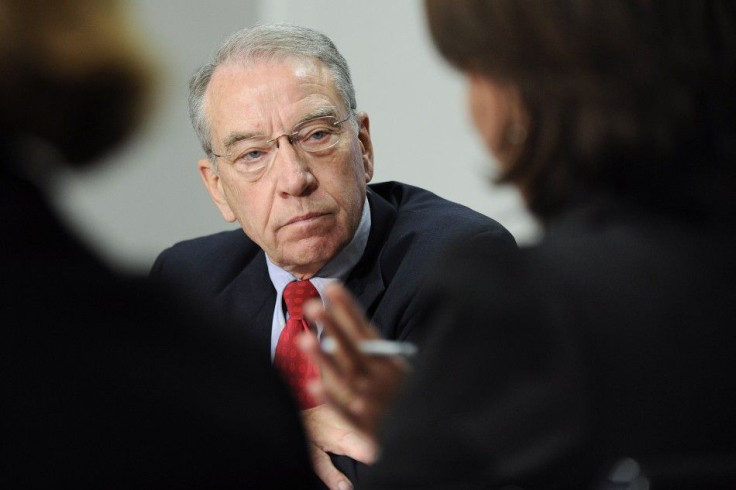Grassley Says D.C. Circuit's Not Busy: Is He Right?

Republicans hoping to prevent President Obama from successfully filling three vacancies on the D.C. Circuit Court of Appeals have argued recently that the court doesn’t need any more judges because its caseload is comparatively small. Sen. Chuck Grassley, R-Iowa, has introduced a bill to eliminate the three spots and add seats to other circuit courts that hear more cases per year.
Grassley’s bill appears to many political experts and opponents as a maneuver to preserve the D.C. Circuit Court's current majority of judges, who are generally known for their conservative rulings. In fact, many who oppose the bill aren’t convinced that the number of cases currently before the court is an accurate measure of the judges' workload.
“There still is a debate over whether the court is really -- how busy the court is,” Russell Wheeler, an expert on the federal court system at the Brookings Institute, told the International Business Times. “I think most people would agree that just the raw filing figures that Sen. Grassley cited don’t tell the whole story.”
In other words, counting the number of cases a court hears each year doesn’t necessarily reflect its workload, because not all cases take up the same amount of a judge’s time. Patricia M. Wald, a former chief judge on the D.C. Circuit, argued in a Washington Post article earlier this year that the D.C. Circuit, which hears the lion’s share of cases regarding federal agency regulations, takes on some of the most laborious cases in the country.
“The D.C. Circuit hears the most complex, time-consuming, labyrinthine disputes over regulations with the greatest impact on ordinary Americans’ lives: clean air and water regulations, nuclear plant safety, health-care reform issues, insider trading and more,” Wald wrote. “These cases can require thousands of hours of preparation by the judges, often consuming days of argument, involving hundreds of parties and interveners, and necessitating dozens of briefs and thousands of pages of record -- all of which culminates in lengthy, technically intricate legal opinions.”
The unique caseload of the D.C. Circuit also adds an extra layer of importance to Obama’s attempt to fill the court’s vacancies: Over the next several years, the court will likely be asked to rule on agency rulemaking for issues from financial regulation to health care to environmental protections -- all Obama administration priorities.
But David Doniger, a senior lawyer at the Natural Resources Defense Council, who sees many of his group’s environmental priorities determined by the D.C. Circuit, is more worried about the number of judges on the court than its partisan leanings.
Doniger said Grassley’s assertion that the D.C. Circuit doesn’t need more judges is “surprising,” he told IBTimes in an interview on Wednesday. “On the one hand, the Republican mantra is that the administration is issuing too many regulations. And on the other hand, they say the D.C. Circuit doesn’t have enough work. So, which is it?” he said.
Based on his experience, Doniger said that the D.C. Circuit doesn’t move very quickly. “There’s a long gap between when you file the case and you’re given the schedule to write your briefs. And then there’s another long gap to oral argument,” Doniger said. “Now sometimes a case is decided relatively quickly after the argument, sometimes they linger for a long time. That’s got to be because these judges are carrying a big workload.”
Doniger pointed to a recent ruling on greenhouse gas emissions as an example. he said the pertinent regulations were issued in 2009 and 2010, briefs were filed in 2011 -- but the court didn't make a and the court finally ruled in 2012.
“So, it’s not quick, and the D.C. Circuit part might be quicker if they had the full complement of judges” Doniger said.
© Copyright IBTimes 2024. All rights reserved.






















